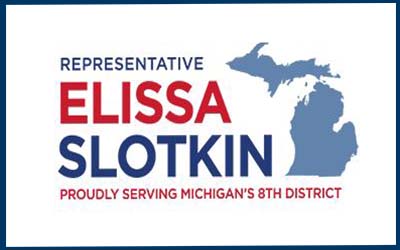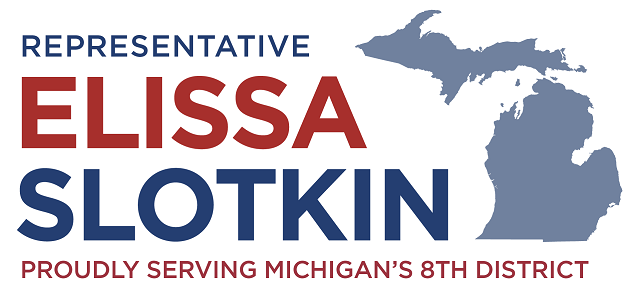
by Becky Andrus | Aug 8, 2022 | Regional News

Gov. Whitmer Highlights Final Application Deadline for Michigan Parents’ Council
The Michigan Parents’ Council will center parent perspective in the policymaking process and formalize how parent recommendations are included in education policy decisions
LANSING, Mich. – Today, Governor Gretchen Whitmer reminded Michigan parents and family members to submit applications to join the new Michigan Parents’ Council by 5PM on Monday, August 8. The governor established the Michigan Parents’ Council to center the parent perspective ahead of the 2022-2023 school year. Joining the council offers parents and family members a space to make their voices heard on state-level education issues in Michigan, including next year’s budget.
“Parents are their children’s first and most important teachers, and their perspective is critical to ensure that the 2022-2023 school year is successful,” said Governor Whitmer. “As a mom, I was proud to establish the Michigan Parents’ Council last month. Parents will be a key ally as we help our kids keep learning in-person, tackle unfinished learning, and get back on track to pursue their potential. I look forward to working closely with the Michigan Parents’ Council and I encourage everyone who is invested in our children’s success to apply before Monday’s deadline.”
Please consider applying by 5PM on August 8 if you are:
- A parent or family member with children in early childhood learning programs, elementary, middle, and/or high school
- A parent or family member with students who have an Individualized Education Plan or Individualized Service Plan, who speak English as a second language, or who are in foster or kinship care.
Michigan parents and family members interested in appointment can apply at www.michigan.gov/Whitmer/Appointments. Click “Apply Now” and select “Michigan Parents’ Council” when prompted in the application. Applications are due by 5PM on Monday, August 8.
Michigan Parents’ Council
Seven parents or family members appointed by the governor will lead the council and convene regional roundtables with families across Michigan to bring in as many voices as possible. Appointees must have children enrolled in PreK-12 and represent diverse student experiences, including special education, English as second language students, and students in foster or kinship care. The council will also include the governor’s K-12 policy advisor and a designated representative of the Superintendent of Public Instruction from the Michigan Department of Education.
The council will convene roundtables of parents and family members across Michigan to strengthen partnerships between parents and schools. They will share input from the roundtables directly with the governor’s team and state superintendent. The council will submit a report to the governor highlighting major themes from the roundtables and summarizing proposals for inclusion in the governor’s budget recommendation by December 9, 2022.
The executive order establishing the Michigan Parents’ Council can be viewed by clicking here.
FY 2023 Education Budget Investments
Governor Whitmer’s recently signed bipartisan education budget is focused on six key sections: students, mental health, learning supports, student safety, school infrastructure, and teacher recruitment.
For our students, the highest state per-pupil funding in Michigan history—$9,150 for every kid, in every public school district. Additional support for the nearly 200,000 special education students and 710,000 at-risk students in Michigan. Expanding funding for career and technical education programs by 27%.
Dedicated mental health dollars for every student in every school. Increasing funding for teen centers, district mental health grants, and TRAILS, which offers training to school mental health professionals so they can better serve students with evidence-based services.
Funding MI Future Educator Fellowships, which pay up to $10,000 in tuition for 2,500 future Michigan educators a year, $9,600 stipends a semester for student teachers, and Grow-Your-Own programs that help districts put support staff on no-cost paths to become educators.
$250 million for school construction and renovations, helping them build or refurbish classrooms, labs, and libraries.
An expansion of before and after-school programs to keep kids engaged. The budget offers every kid in Michigan tutoring to help catch up and get on track for long-term success, and resources for districts to develop learning pods for academically at-risk and economically disadvantaged students.
Dedicated school safety dollars for every student in every school. Funds to hire more on-campus school resources officers, create an intervention system for at-risk students that brings together law enforcement, schools, and mental health professionals, and establish a school safety commission.
Governor Whitmer’s Education Investments
For four years in a row, Governor Whitmer has worked across the aisle to make the largest education investments in Michigan history—without raising taxes. Since taking office, the governor has tripled the number of literacy coaches and last year, closed the funding gap between schools, boosted state per-student investment to an all-time high, and helped districts hire thousands of teachers on-campus mental health professionals.
The Whitmer-Gilchrist Administration’s education accomplishments can be found here.
|

by Becky Andrus | Aug 4, 2022 | Regional News

Governor Whitmer Makes Appointments to the Bench
LANSING, Mich. — Today, Governor Gretchen Whitmer announced the appointments of Amy C. Clapp to the 49th Circuit Court of Mecosta and Osceola Counties and Amanda L. Eicher to the 1st District Court of Monroe County.
“I am proud to appoint Amy and Amanda, two skilled legal professionals with a range of experience, to the bench,” said Governor Whitmer. “They will both serve the people of Michigan honorably and uphold the law, ensuring that our families and communities are safe and justice is delivered.”
49th Circuit Court – Mecosta and Osceola Counties
Amy C. Clapp is the current prosecutor for Mecosta County. She was appointed to this position in 2021 after serving as the chief assistant prosecutor since 2015. Prior to her current role, Clapp was an attorney with Heidi L. Wolf, PC where she represented clients charged with criminal misdemeanors and felonies and in estate planning, divorce and child custody, and civil litigation. She has also served as assistant prosecutor for Allegan and Mecosta Counties and as an adjunct professor for Aquinas College where she taught Constitutional Law.
Clapp earned her Juris Doctor degree from Michigan State University Law School and Bachelor of Science degree from Aquinas College. She has served as a member of the Allegan County Coordinating Council on Domestic Violence, Allegan County Mental Health Treatment Court, Mecosta County Domestic Violence Task Force, and Mecosta County Multi-Disciplinary Team for Child Abuse and Neglect. Amy lives in Stanwood with her husband, Andrew.
“I am so grateful to Governor Whitmer for this appointment to the 49th Circuit Court,” said Clapp. “I have dedicated my career to public service, and I’m honored to have the opportunity to continue that service for the citizens of Mecosta and Osceola Counties. As Judge, I hope to increase accessibility and transparency of the court, promote civility and respect, and apply the law fairly and justly. I’m humbled by this opportunity and excited beyond measure.”
This appointment was made to fill a partial term, which will commence on August 22, 2022 and expire at twelve o’clock noon on January 1, 2025, following the retirement of Judge Scott Hill-Kennedy effective June 10, 2022. If Ms. Clapp wishes to seek a full six-year term, she would be required to run for reelection in November of 2024.
1st District Court – Monroe County
Amanda L. Eicher currently serves as the supervising attorney for Legal Services of South Central Michigan a division of the Michigan Advocacy Program (MAP). In her role, Eicher provides free civil legal advice and representation to low-income citizens and senior citizens of Monroe and Lenawee Counties. She has handled cases involving domestic violence, family law, personal protection orders, landlord tenant cases, probate issues, and expungements. Before joining the MAP, she was an attorney with Lambrix & Bartlett, PLLC and Leonard K. Kitchen & Associates. Eicher also served as a judicial clerk with the Monroe County Probate Court following her graduation from law school.
Eicher earned her Juris Doctor degree from Michigan State University College of Law and her Bachelor of Arts degree from Pennsylvania State University. Eicher is a member of the Lenawee County Domestic Violence Task Force, Lenawee County Anti-Human Trafficking Task Force, and Lenawee County Sexual Assault Task Force. Amanda is a long-time resident of Monroe County and lives in Milan with her family.
“I am humbled and honored by Governor Whitmer’s confidence in me,” said Eicher. “I have been fortunate to serve the people of Monroe County throughout my career and it will be a privilege to continue to do so in the capacity of district court judge. I look forward to this opportunity and will ensure that all parties are treated with dignity and respect.”
This appointment was made to fill a partial term, which will commence on September 6, 2022 and expire at twelve o’clock noon on January 1, 2025, following the appointment of Judge William Nichols to the 38th Circuit Court effective April 18, 2022. If Ms. Eicher wishes to seek a full six-year term, she would be required to run for reelection in November of 2024.
Judicial appointments are not subject to the advice and consent of the Senate.
|

by Becky Andrus | Aug 4, 2022 | Regional News

ICYMI: Michigan #1 State for Energy-Sector Job Growth
State added 35,463 energy jobs—more than any other state—from 2020 to 2021
LANSING, Mich. – Today, Governor Gretchen Whitmer announced Michigan has been ranked #1 in the nation for energy job growth according to the U.S. Energy and Employment Jobs Report (USEER). The state added 35,463 energy sector jobs from 2020 to 2021, more than any other state in the nation. Michigan’s job growth boosted total energy jobs in the state by almost 10%. Michigan’s 393,207 energy workers represent 5% of all U.S. energy jobs and 9.5% of state jobs.
“Michigan’s economy is on the move. Unemployment is low, small business growth is booming, and we had strong job growth last year. This report shows that Michigan is number one in the nation, adding over 35,000 good-paying energy jobs,” said Governor Whitmer. “When we invest in the future of mobility and clean energy and face climate change head-on, we can create tens of thousands of jobs, build prosperity in every region of our state, and ensure that we remain competitive for future business investment and economic development. I will work with anyone to keep growing Michigan’s economy and energy sector.”
“This report confirms what we already know – Michigan continues to be the number one state to live, work and play,” said Susan Corbin, Michigan Department of Labor and Economic Opportunity director. “We are committed to making sure everyone has an equal opportunity to succeed in these in-demand, rewarding careers in the energy sector and beyond – building a talent pool that’s second to none and driving the talent to meet employer needs.”
“This report shows that Michigan has a competitive edge in advanced energy and a vibrant industry that continues to create well-paying jobs,” said Dr. Laura Sherman, President of the Michigan Energy Innovation Business Council. “We must continue to establish supportive policies, set ambitious goals, and invest in training and infrastructure to ensure that the advanced energy industry continues to grow and thrive in our state.”
“These numbers demonstrate that the transition to EVs continues to spur job growth in multiple sectors of the economy,” said Glenn Stevens, Executive Director of MichAuto. “The big investments made by Michigan’s automobility industry in electrification are now yielding tangible results. Michigan must continue this momentum by solidifying industry and government partnerships to bring more mobility investment, innovation, and jobs to our state.”
Background on U.S. Energy and Employment Jobs Report
The report combines employer surveys with public data to track energy job growth in key areas, including electric power generation and transmission, fuels, energy efficiency, and motor vehicles. Prior to the COVID-19 pandemic, the energy sector was a fast-growing part of the economy, with employment growth rates at 3% — double that of the economy as a whole. While the energy sector was impacted by the COVID-19 pandemic, data shows that the sector has begun to rebound, employing 7.8 million Americans in 2021. The motor vehicle sector in particular grew 9.8% from 2020 to 2021.
Creating Clean Energy Jobs Governor Whitmer is committed to growing Michigan’s economy and creating clean energy jobs. Early in her administration, she made administrative changes to help build the largest solar array East of the Mississippi River. The governor also took steps to ensure that all State of Michigan facilities will be powered by 100% renewable energy by 2025 and worked to responsibly deploy solar and electric vehicle charging stations on state-owned property and land.
The governor has signed four bipartisan budgets since taking office, investing tens of millions of dollars in clean energy improvements and upgrades for state facilities, families, local governments, houses of worship, and small businesses. Her budgets have also consistently invested in Michigan Saves, the nation’s first nonprofit green bank supporting small businesses and working families with financing energy improvements.
In April, Governor Whitmer unveiled the MI Healthy Climate Plan, a roadmap to grow Michigan’s economy, lower costs for working families and small businesses, create clean energy jobs, and achieve economy-wide carbon neutrality by 2050 with interim goals in 2025 and 2030.
Investing in the Future of Mobility and Electrification
Governor Whitmer has helped Michigan build on its legacy and leadership in mobility. Last year, she worked across the aisle to pass a historic, bipartisan economic development package that empowers Michigan to win big projects and create thousands of good-paying jobs. This package helped Michigan compete for and win an historic $7 billion investment from GM, creating and retaining 5,000 jobs; a $1.7 billion investment from electric vehicle battery manufacturer LG Energy Solution creating 1,200 jobs; and a $2 billion investment from Ford that will create more than 3,200 jobs.
The governor has also launched mobility-focused workforce and talent initiatives like the EV Jobs Academy and the Mobility Talent Action Team to prepare Michigan’s workforce for future electric vehicle and component manufacturing jobs. She has also spearheaded a number of public-private partnerships including REV-Midwest, a 5-state regional electric vehicle charging network; the Lake Michigan Circuit, an electric vehicle route around Lake Michigan with electric vehicle chargers in state parks; and pioneering projects like CAVNUE, a corridor for autonomous vehicle testing, and a road that charges electric vehicles wirelessly while they are moving.
The recent bipartisan budget she signed—her fourth since taking office—included funding for a transformational education project focused on research and mobility centric workforce training at the University of Michigan.
|

by Becky Andrus | Aug 3, 2022 | Regional News

Governor Whitmer Announces Michigan Joining Three Other Midwest States to Build Lake Michigan EV Circuit, America’s Best Electric Vehicle Road Trip
States will collaborate to build chargers along 1,100+ mile drivable shoreline of Lake Michigan, support jobs and local economies in Michigan, Indiana, Illinois, Wisconsin
LANSING, Mich. – Governor Gretchen Whitmer announces a collaboration with Indiana Governor Eric Holcomb, Illinois Governor JB Pritzker, and Wisconsin Governor Tony Evers to build America’s next iconic road trip route, specifically for electric vehicles. The Lake Michigan EV Circuit Tour will be a network of electric vehicle chargers spanning over 1,100 miles of drivable shoreline around Lake Michigan. The multistate partnership to build and maintain the chargers and market the new eco-tourism attraction was solidified by a Memorandum of Understanding signed by key officials from each state.
“Today, Michigan is proud to lead the Lake Michigan Electric Vehicle Circuit Tour, a partnership between fellow Midwestern states to grow our economy, create more good-paying jobs, and lead the future of mobility and electrification,” said Governor Whitmer. “Since I took office, Michigan has announced nearly 25,000 auto jobs, many building electric vehicles and batteries. We have also forged public-private partnerships to build more chargers, bring supply chain home, and make our public parks more accessible. With this announcement, we are putting the country on notice that the Midwest is the place to be for clean energy and small business growth. The circuit will allow travelers to experience Lake Michigan and visit countless communities in and around the route. I am so proud that we came together to forge this bipartisan agreement. Let’s keep Michigan—and the Midwest—moving forward.”
Lake Michigan EV Circuit Tour
An electric Route-66. The Lake Michigan EV Circuit Tour will provide electric vehicle drivers a long-distance vacation opportunity with no range anxiety, and no harmful emissions.
The circuit will be a scenic route with reliable electric vehicle chargers along Lake Michigan’s 1,100 mile drivable coastline. The chargers will be installed in key coastal communities at lighthouses, state parks, breweries, vineyards, restaurants, and other small businesses. They will also be meshed into existing charging infrastructure networks at large entertainment attractions in cities along the route including Chicago, Milwaukee, and Green Bay.
Many of the network’s chargers are operable today, and drivers can expect the remainder to be installed within the next few years.
|

by Becky Andrus | Aug 3, 2022 | Regional News

Gov. Whitmer Announces Michigan Reconnect Milestone:
Over 100,000 Applicants Accepted into Program
Bipartisan effort is putting more working-age adults on tuition-free path to high-demand, high-wage careers
LANSING, Mich. – Today, Governor Gretchen Whitmer announced that as of late July, more than 100,000 Michiganders are on their way to a tuition-free degree or skills certificate through the Michigan Reconnect program.
This news marks a major milestone in the state’s efforts to achieve the governor’s Sixty by 30 goal, which aims to increase the number of adults in the state with a postsecondary degree or credential to 60% by 2030. Since the announcement of the Sixty by 30 goal, the percentage of working-age adults with a college degree or certificate has increased from 45% to 49%.
“Michigan Reconnect is putting hardworking Michiganders on a tuition-free path to a brighter future,” said Governor Whitmer. “This bipartisan program is a game-changer not only for the people enrolled in the program, but also for their families, small businesses, and the state of Michigan. I am so proud of all 100,000 and counting Reconnect applicants. They have taken an important step to chase their dreams, learn new skills, and land a good-paying job to support themselves and their families. Because of their grit and determination, we can keep growing Michigan’s economy, supporting and attracting hardworking people, and powering small businesses in every region of our great state.”
Created with overwhelming bipartisan support, the program is the largest effort in state history to ensure that Michiganders who are 25 or older and do not have a college degree have an opportunity to earn an associate degree or certificate with free or deeply discounted tuition. Since its launch in February 2021, approximately 18,000 participants have returned to school to finish their degree or enrolled for the first time. Over 500 have already graduated with an associate degree or skills certificate.
“More Michiganders are within reach of a college degree or skills certificate thanks to efforts like Michigan Reconnect,” Michigan Department of Labor and Economic Opportunity Director Susan Corbin said. “We are creating new opportunities for our workers to land high-paying jobs in fulfilling careers and for our Michigan businesses to fill critical talent needs so they can continue to compete, grow and innovate.”
Paving Pathways for Opportunity
After facing significant challenges throughout her life, including time in the foster care system and living on her own while trying to graduate from high school, Shelby Essenmacher always thought that obtaining a college education and a fulfilling career with a good paycheck were out of her reach.
That is, until the native Detroiter applied for the Michigan Reconnect scholarship program.
Essenmacher, 31, is taking advantage of the program to pursue an Associate of Applied Science in Nursing degree at Wayne County Community College District.
“This has been a life changer,” Essenmacher said. “I can now go after my dream of becoming a nurse without worrying about the cost of tuition, which has always been a major barrier preventing me from going back to school. Reconnect has cleared a pathway for me to achieve my education and career goals.”
Governor Whitmer and her administration have worked with the Legislature to assemble a network of people and resources to provide Reconnect students the critical support they need to successfully enroll in classes and complete their degree or certificate program.
Last month, the governor announced a $6 million bipartisan investment to help enrollees overcome other major barriers, including the cost of books, child care, food, internet access and transportation.
Grants will be available through Michigan community colleges, including its three tribal colleges, for Reconnect and Futures for Frontliners students, allowing up to $550 per academic year to be distributed directly to eligible students who have completed at least one semester with either scholarship program.
Michigan Reconnect Navigators are another available resource to help students succeed with the steps leading up to enrollment. Navigators are available to help applicants complete admissions and financial aid requirements, set career goals, identify educational opportunities and create a plan to graduate. Navigators also connect students to additional programs and assistance offered by their community college and local partners to remove barriers to education.
“Making the decision to go back to school, especially when you are already balancing adult responsibilities like a job or a family, is empowering and inspiring—and it can be daunting,” said Sarah Szurpicki, LEO’s Office of Sixty by 30 director. “That’s why we want everyone considering the Michigan Reconnect scholarship program to know there is support along the way, and the Navigators can help them find solutions to anything that would stop or slow them down.”
Michigan Reconnect pays the cost of in-district tuition for eligible adults who want to pursue an associate degree or skills certificate at any of Michigan’s public community colleges, including its three tribal colleges. Eligible residents can attend community college tuition-free at a community college where they are considered in-district. For those who are not considered in-district by a community college, Michigan Reconnect will still cover up to the in-district portion of tuition.
To be eligible for Michigan Reconnect, a person must:
- Be at least 25 years old when you apply
- Have lived in Michigan for a year or more
- Have a high school diploma or equivalent
- Have not yet completed a college degree (associate or bachelor’s)

by Becky Andrus | Aug 3, 2022 | Regional News
 |
|
| Hi there,
I have some incredible news for Michiganders – especially our auto workers: last week, the House passed the landmark CHIPS and Science Act, a bill that will encourage the production of microchips here in the U.S. and create thousands of new American manufacturing jobs.
Let’s be clear: this is a huge deal. By incentivizing companies to build new microchip plants here in the U.S., instead of places like China, this bill helps prevent future shortages like the ones that have shut down auto plants across the country, including GM’s Delta Township and Lansing Grand River plants. As we start to make more chips in the U.S., we’ll get thousands of workers back on the job and help bring prices down for consumers.
And as a former CIA officer, I know this bill is also critical for our national security by reducing our dependence on foreign suppliers for critical parts our military needs. This isn’t just an economic issue, it’s a national security issue too – by bringing this manufacturing back home, we’re ensuring that we can’t be held hostage by our adversaries in the event of a conflict with countries like China.
The legislation also takes care to make sure that the chip companies live up to their commitment to invest in American manufacturing. It includes prevailing wage requirements and other provisions that ensure U.S companies don’t buy back their own stock or invest in overseas chip projects.
As microchip shortages have wreaked havoc on our economy, I’ve been sounding the alarm for over a year. Last summer, I joined a group of UAW workers at a parking lot on MSU’s campus where GM was storing dozens of cars that couldn’t be shipped or sold because they were missing a 14-cent microchip.
The path to turning this bill into law has been long and winding, but today Congress finally showed that we’re ready for American – not Chinese – companies to lead the way in the global chip industry.
– Rep. Elissa Slotkin |








